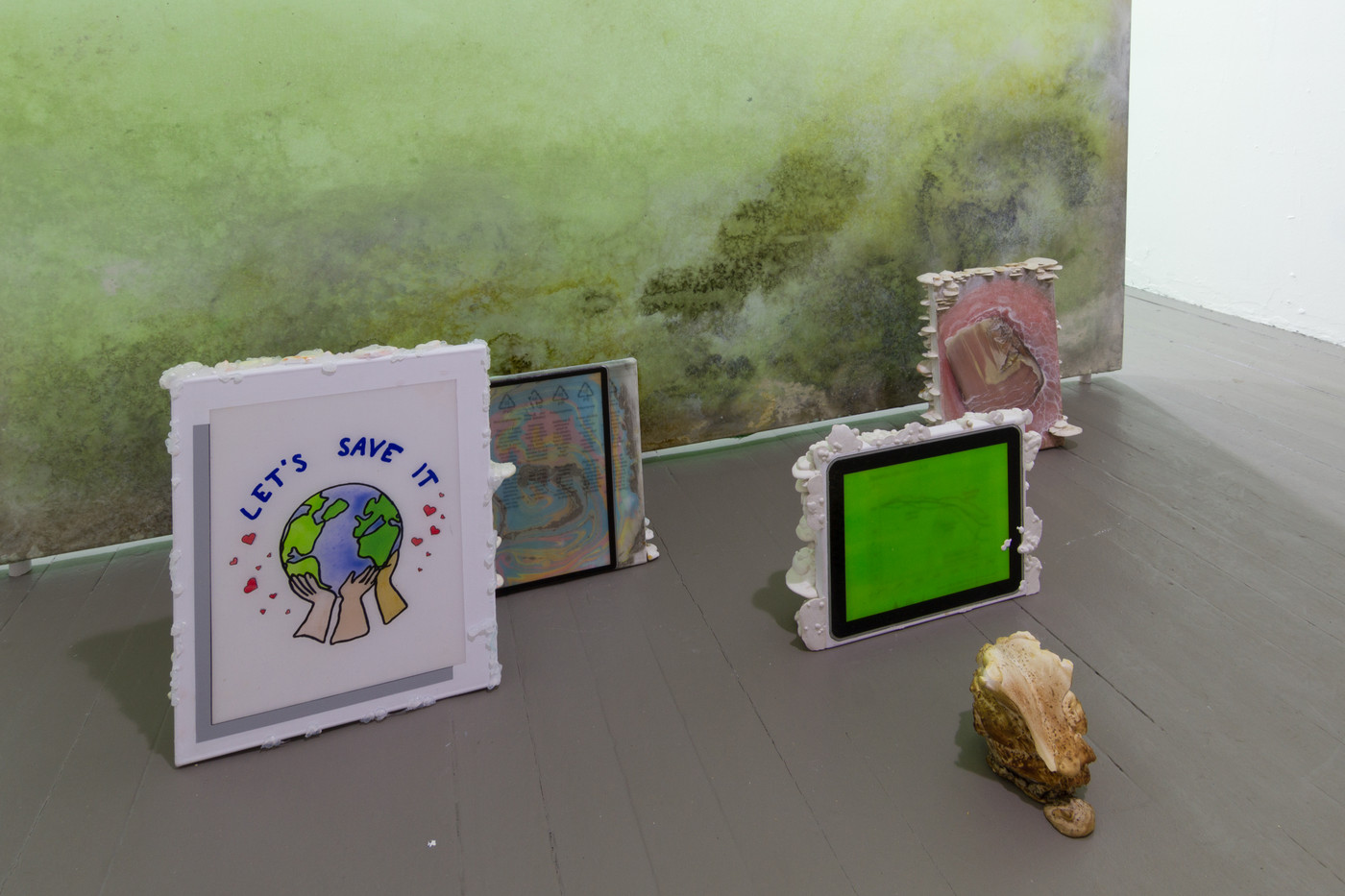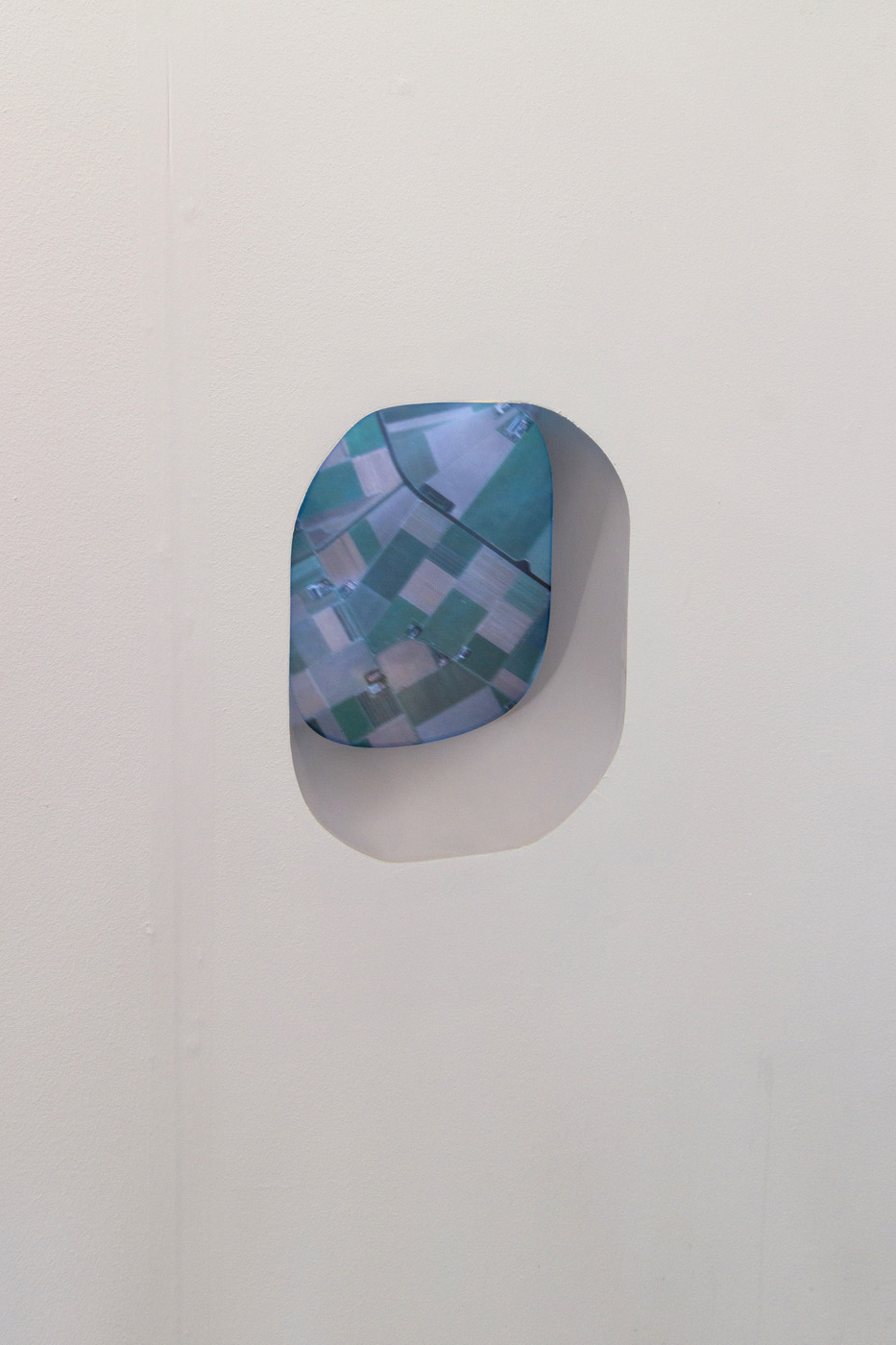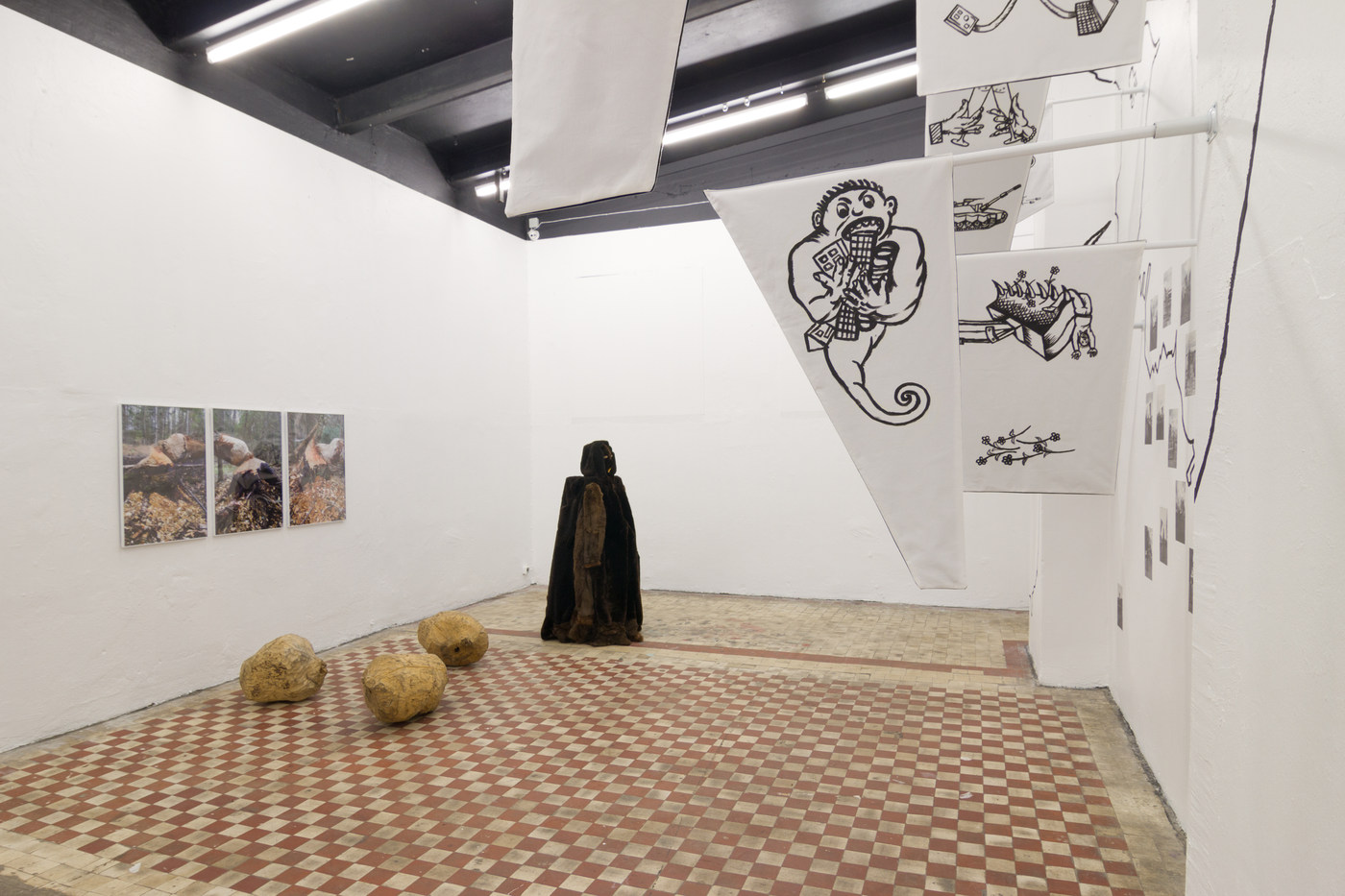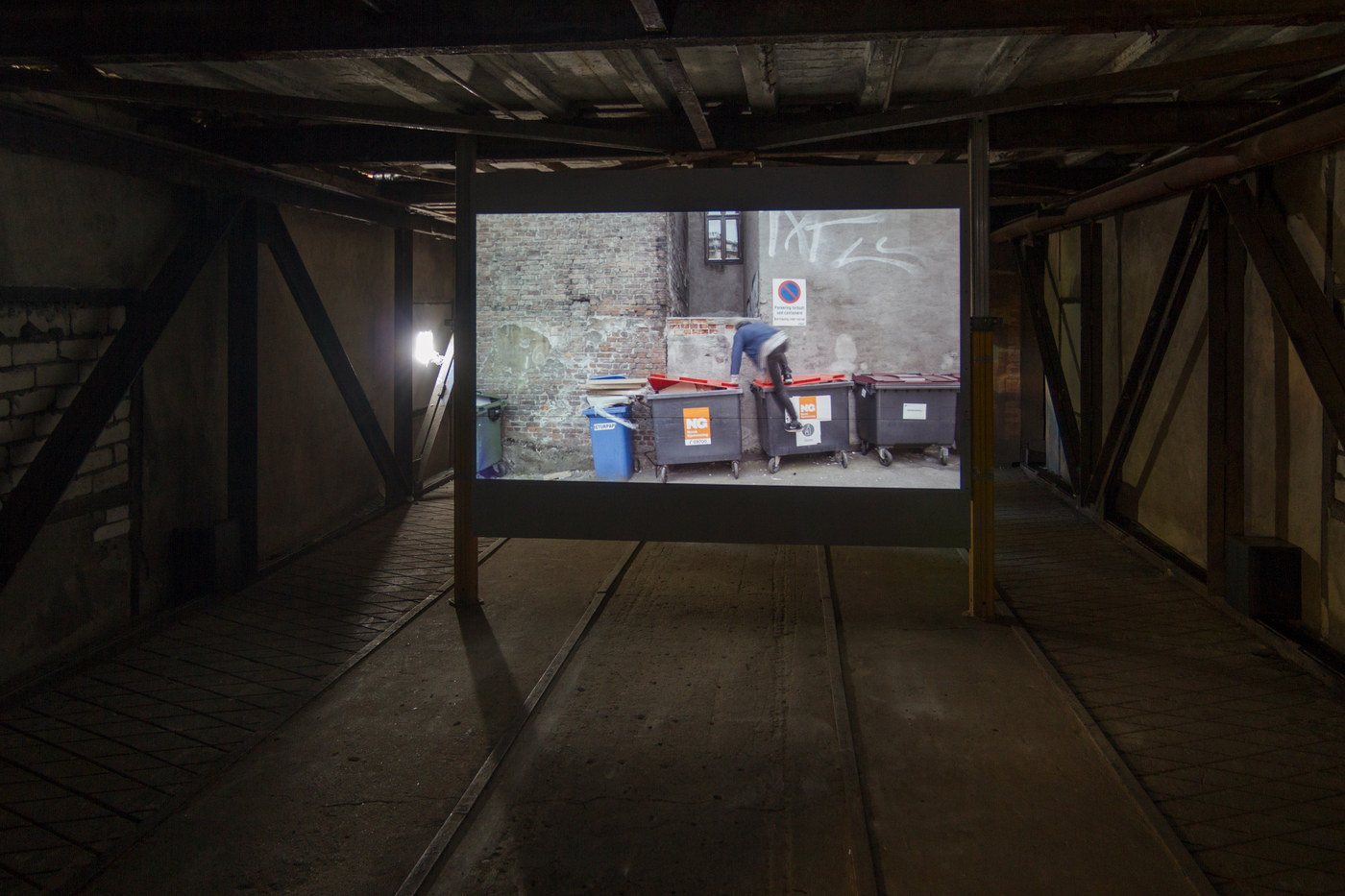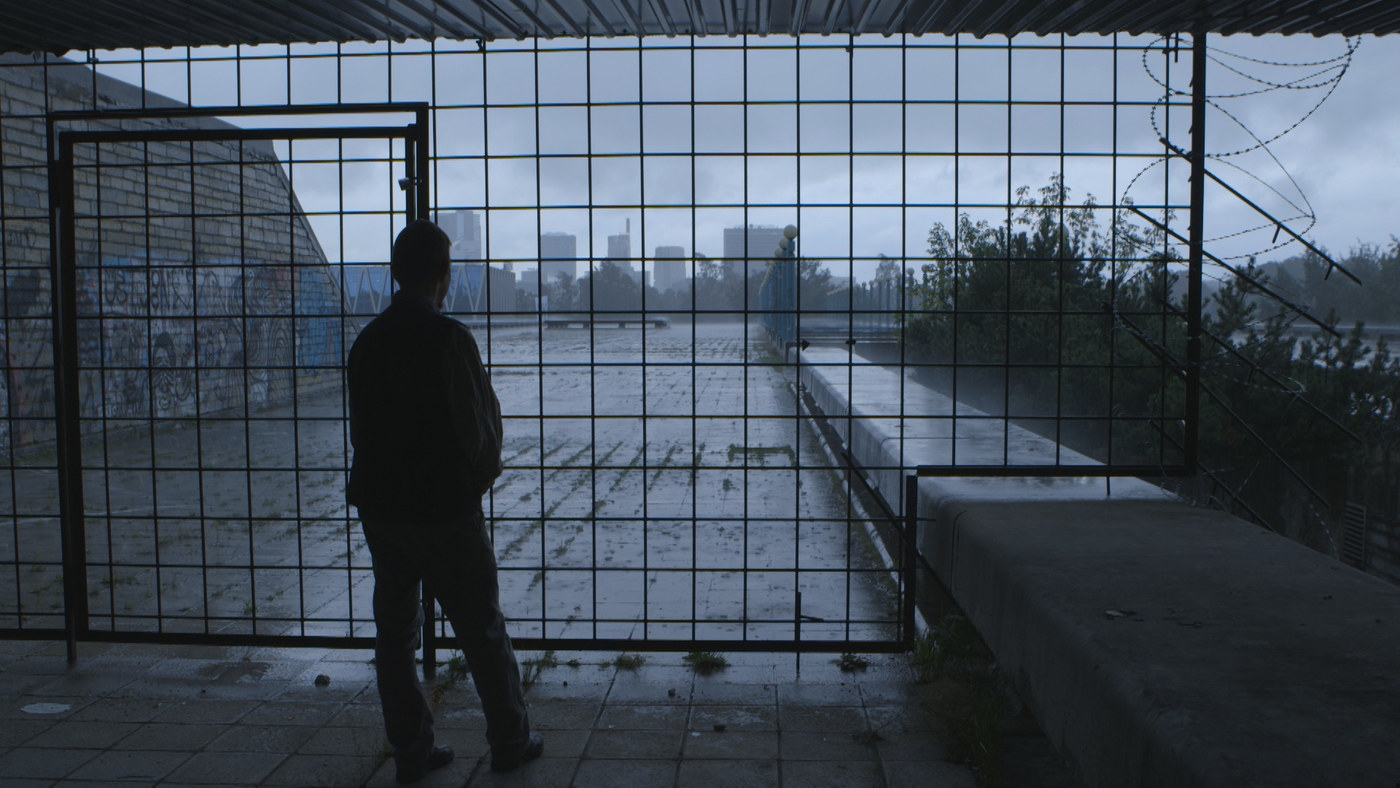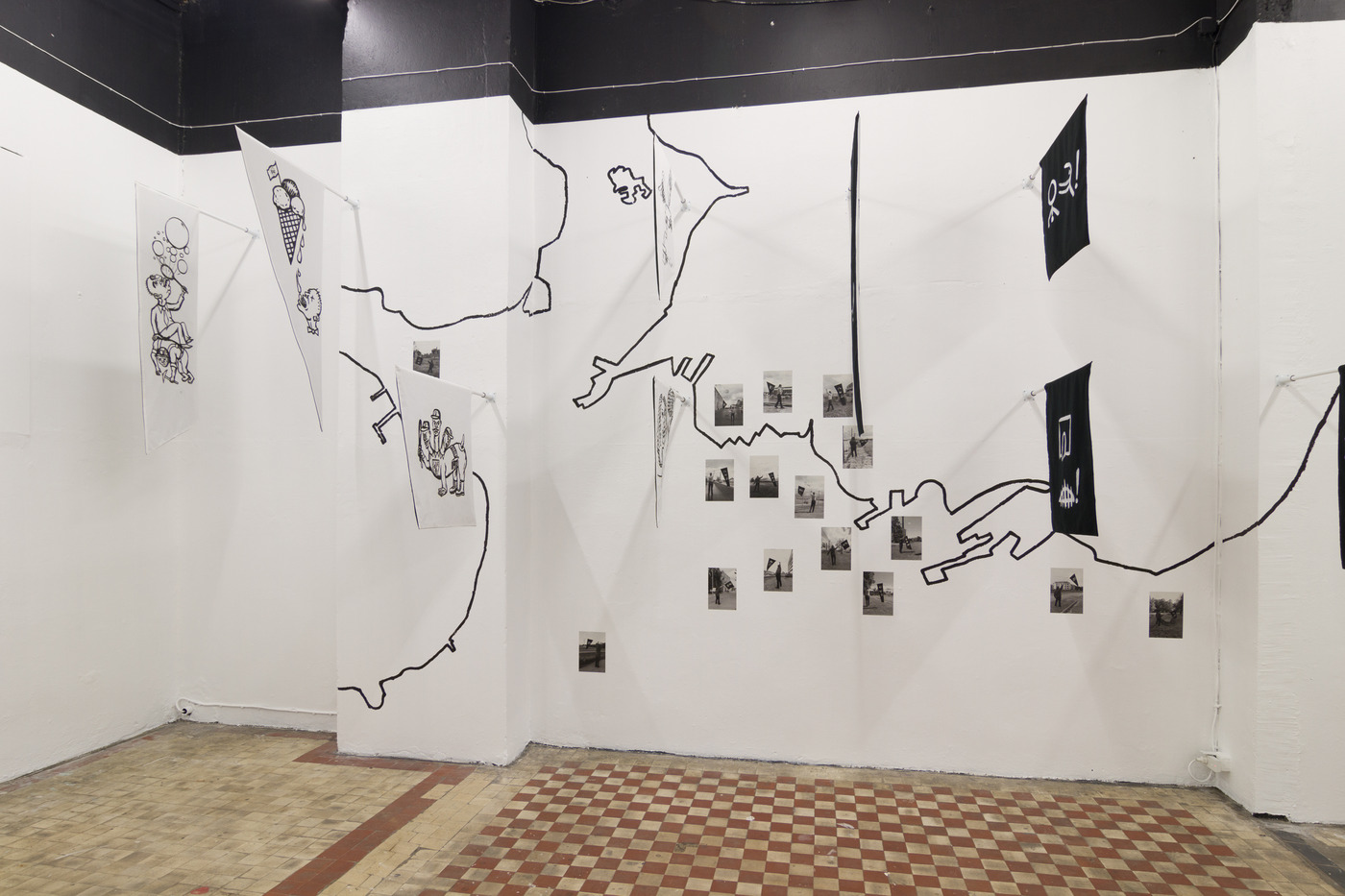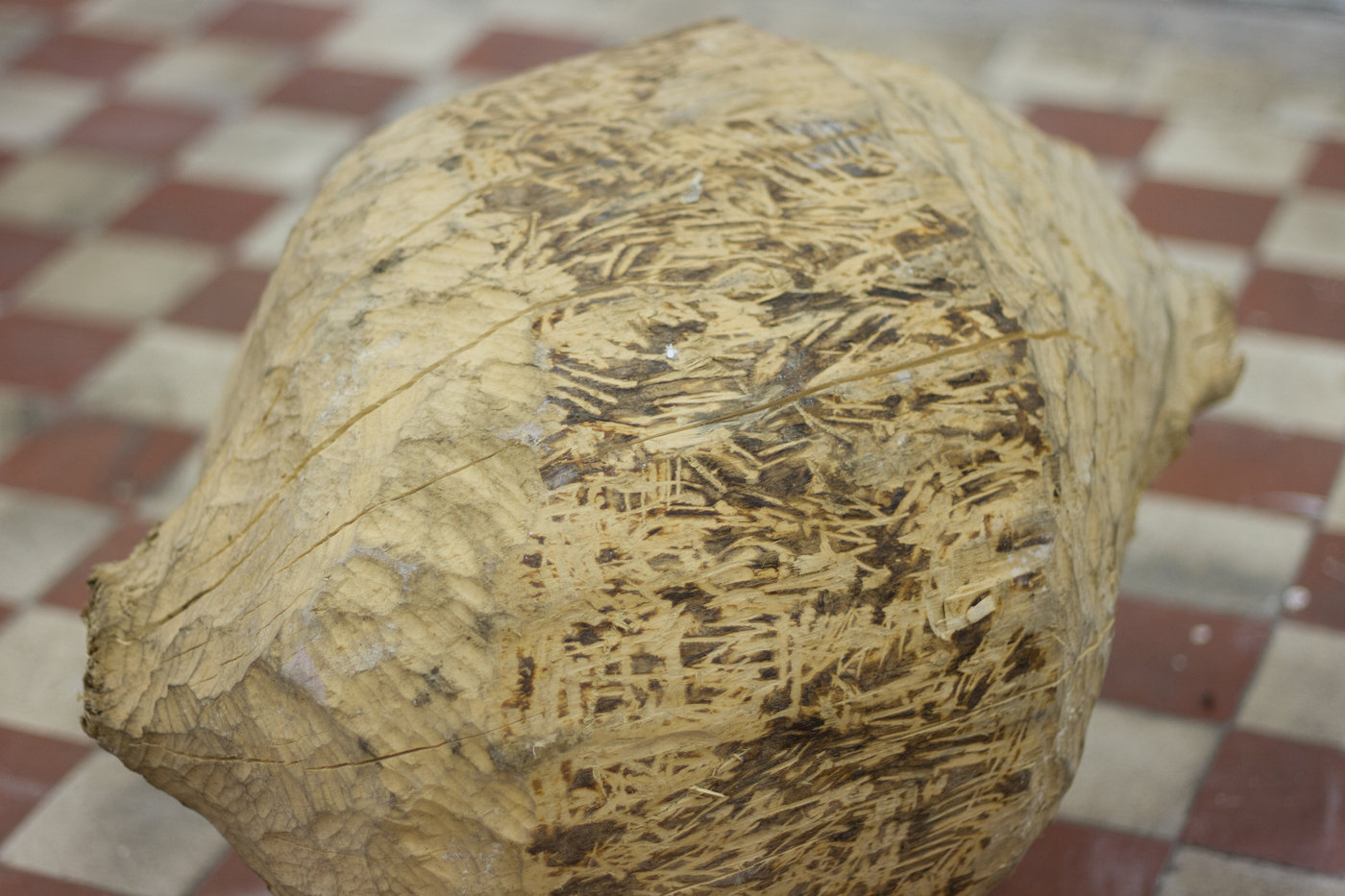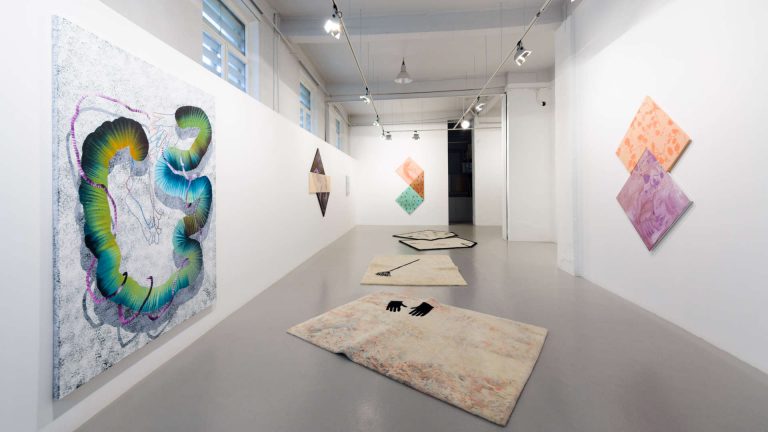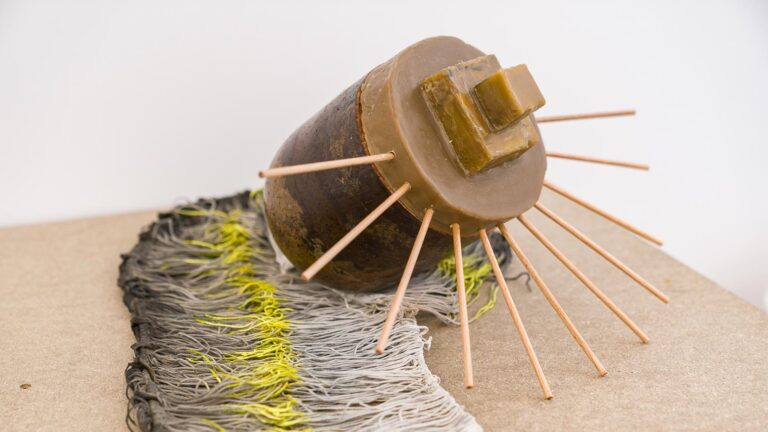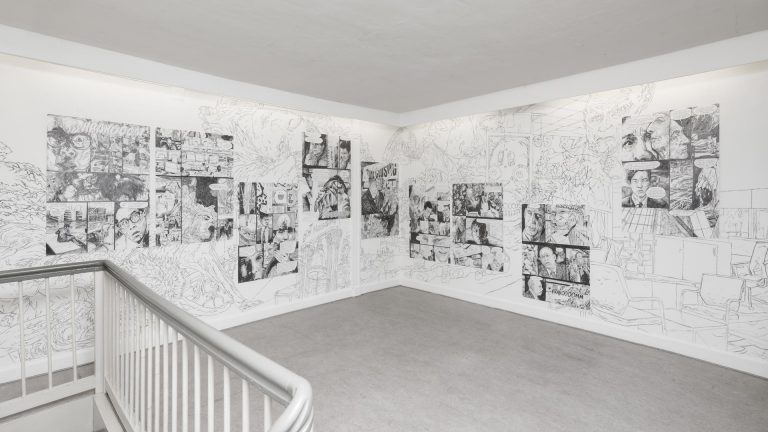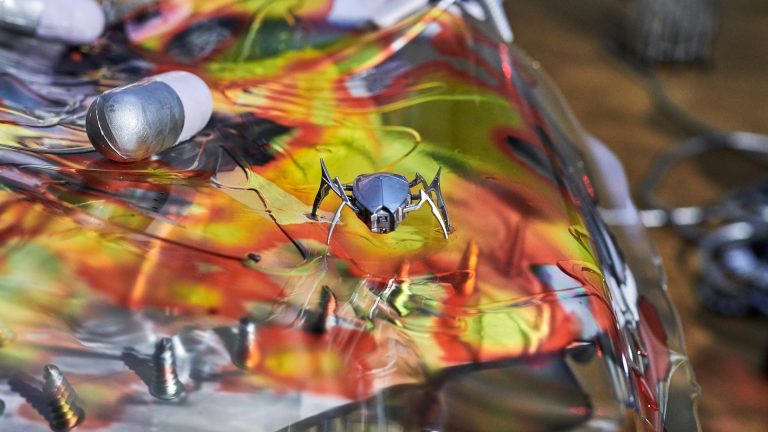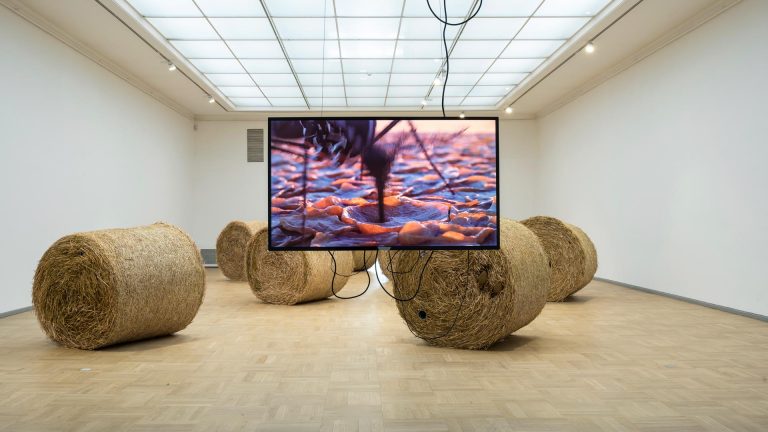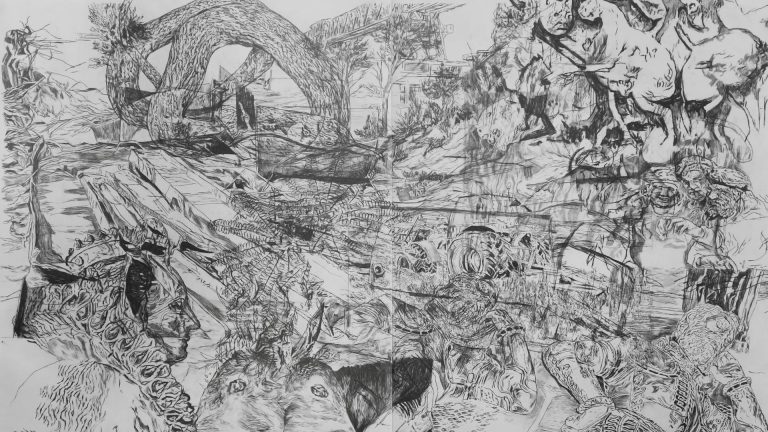Artists: Zachary Formwalt, Alma Heikkilä, Barbara Knezevic, Antti Majava, Arttu Merimaa, Anu Pennanen, Rena Rädle & Vladan Jeremic, Asbjørn Skou, Uku Sepsivart, Jon Benjamin Talleras, Mona Vatamanu & Florin Tudor, Ingel Vaikla
Exhibition title: City Agents
Curated by: Jussi Koitela
Venue: Estonian Museum of Contemporary Art (EKKM), Tallinn, Estonia
Date: August 6 – September 11, 2016
Photography: all images copyright and courtesy of the artists and EKKM
The exhibition project ‘City Agents’ looks into the exhibition space and the contemporary city space as sites of the accumulation of capital. It maps out current active agencies that gentrify the city and zooms in on artistic practices that expose and shape forms of social, ecological and economic activation and deactivation of urban space. The project recognises the potential of contemporary artistic practices for rethinking spatial, social and economic shifts organised by human and extra-human co-agencies in the public space.
‘City Agents’ places itself into the Contemporary Art Museum of Estonia (EKKM), an artistic institution that is located in between Tallinn’s most rapidly gentrifying urban area, Kalamaja – an out of use Soviet era culture and leisure centre, Linnahall – a tourist packed Old Town, and the Baltic Sea. EKKM is one of the key co-agents of urban development in Tallinn, but on the other hand, it is constantly challenged by the development of the city space itself.
Currently art institutions, studio complexes and gallery spaces are seen as an addition to the neoliberal creative space within the contemporary urban network. Art-related spaces and institutions have been agents of gentrification as has the creative class, gaining ground for tourism and real estate speculation. This rhetoric of creativity, together with the booming development of creative urban areas, has shifted the roles of artistic institutions in many cases to that of the first agents in the soon to be developed and re-developed city areas.
The contemporary city is being developed through the viewing of certain areas and spaces as empty and misused. Often investors and politicians view space with what can be understood as a colonial outlook that fills “emptiness” and makes it “usable”. Gentrification can been seen as capitalizing, and as urban planning, which creates a function for something that has been seen before as non-productive; a space without a function. In the age of neoliberal economy, instrumentalised production is the process where function and knowledge are produced.
Through this engagement of capital and knowledge production, the city and creative space are experienced as flows of objects and energies, creating densities and cartographies of matter and form. Or, this is how is seems from the human perspective: Neoliberalism as the only alternative, as a basis for understanding ontological units that the city space contains. Human-driven capitalism directs and shapes the objects and energies of the public space, forming grids and geometries of control and division.
‘City Agents’ brings up artistic practice as a way of exposing those material flows, objects end densities of the city. It shows spatial, economic and ontological human-driven conditions of the urban space. It argues and rethinks city space from established divisions of function/non-function, human/extra-human, built/empty and productive/non-productive, local/global, urban/rural to more hybrid, blurred and merged notions about contemporary city space and about the agencies that are forming it.
The project is curated by Jussi Koitela in the context of the on-going curatorial research project Skills of Economy.
The project is supported by the Cultural Endowment of Estonia, Estonian Ministry of Culture, Frame Contemporary Art Finland, Culture Ireland, Danish Art Agency, Mondriaan Fund and Draka Keila Cabels AS.
Jussi Koitela’s curatorial research and practice is supported by Kone Foundation.
Alma Heikkilä, Microbiota, 2016 (detail)
Ink, acrylic, rice glue, polyester, plaster, wood, metal
Alma Heikkilä, Microbiota, 2016 (detail)
Ink, acrylic, rice glue, polyester, plaster, wood, metal
Alma Heikkilä, Microbiota, 2016 (detail)
Ink, acrylic, rice glue, polyester, plaster, wood, metal
Alma Heikkilä, Microbiota, 2016 (detail)
Ink, acrylic, rice glue, polyester, plaster, wood, metal
Antti Majava, Suprematist Landscape, 2016
Video captured from Google Earth flight above the central Europe
Anu Pennanen, Sõprus – Druzhba (Friendship)
30:58 min, 2006 (still image)
Asbjørn Skou, XERO/POLIS #1: Golden Cities Golden Towns, 2016
Wall drawing (acrylic ink on wall)
Asbjørn Skou, XERO/POLIS #1: Golden Cities Golden Towns, 2016
Wall drawing (acrylic ink on wall)
Uku Sepsivart, Rise of the Beaversculptor, 2016
Rena Rädle & Vladan Jeremić, Real Struggle, Fake Estates, 2016
Zachary Formwalt, In Light of the Arc, 2013
Double-channel hd video with sound
Jon Benjamin Tallerås, No alternate route, 2015
Video Installation, 7.15 min (loop)
Jon Benjamin Tallerås, No alternate route, 2015
Video Installation, 7.15 min (loop)
Jon Benjamin Tallerås, No alternate route, 2015
Video Installation, 7.15 min (loop)
Barbara Knezevic, Portals, 2016, Fired clay, sea water, fabric
Barbara Knezevic, Lumps, 2016, Fired clay, leather
Barbara Knezevic, Lumps, 2016 (detail)
Fired clay, leather
Barbara Knezevic, Portals, 2016 (detail)
Fired clay, sea water, fabric
Ingel Vaikla, The House Guard, 2015
25:55 min, (still image)
Arttu Merimaa, Autochthonic Fantasy, 2016
18:00 min, (still image)
Arttu Merimaa, Autochthonic Fantasy, 2016, 18:00 min
Mona Vatamanu & Florin Tudor, Land Distribution, 2010
Rena Rädle & Vladan Jeremić, Real Struggle, Fake Estates, 2016
Textile flags, acrylic
Uku Sepsivart, Rise of the Beaversculptor, 2016 (detail)
Uku Sepsivart, Rise of the Beaversculptor, 2016 (detail)



